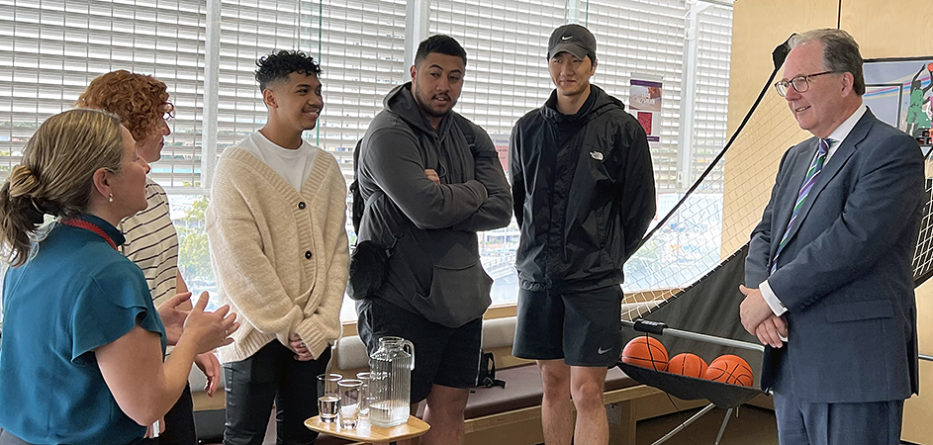Australian Catholic University (ACU) has welcomed almost $2 million in New South Wales Government grants to help educate more low socio-economic students and provide cutting-edge training tools for future teachers.
The two grants include $997,317 to provide state-of-the-art immersive technologies for teaching students and $981, 759 to expand ACU’s successful Uni Step-Up (USU) program.
Minister for Skills and Training Alister Henskens said the project had been funded under the NSW Government’s Technology, Innovation and Entrepreneurship Skills program.
“The NSW Government is investing in projects that break down barriers and encourage students to drive innovation and develop their entrepreneurial skills,” Mr Henskens said.
“We want to help students learn in new and innovative ways, using emerging technologies, so that universities can better address skills gaps and develop job-ready graduates.”
Minister Henskens visited ACU’s Blacktown Campus where he met students and tested technology ACU has adopted for training teachers.
As part of the technology grant, innovative training tools will be provided to teaching students including immersive Virtual Reality (VR) to help early childhood students link theory with simulated real-world contexts.
Significant teacher shortages in design and technologies areas will be countered through the delivery of state-of-the-art courses for undergraduates, and re-training teachers, in areas such as timber, metal, and electronics.
Furthermore, teaching students will have access to SimLab, a virtual classroom technology designed to help hundreds of primary and secondary pre-service teachers practise skills including managing classrooms, interacting with parents, and teaching in responsive and inclusive ways.
ACU Faculty of Education and Arts Executive Dean Professor Mary Ryan said the grant would allow the university to model contemporary practice and use cutting-edge technologies to prepare pre-service teachers.
“Teacher training technologies that replicate school-based scenarios are vital to ensure graduates are ready for the classroom and the profession,” Professor Ryan said.
“These technologies also play a key role in solving skill shortages in STEM disciplines by helping undergraduates and teachers, particularly in regional and rural schools, to upskill.”
ACU Pathways Director Marta Spes-Skrbis said the USU funding would be used to bring the program to the Blacktown Campus and expand its eligibility to include non-recent school leavers, in addition to senior secondary school students, from low socio-economic and culturally and linguistically diverse backgrounds.
It is expected about 110 students will join the program at Blacktown each year for the next three years, allowing them to study two fully funded and credited first-year units in Law, Business, or Health Science before deciding whether to enrol in related tertiary studies.
Mrs Spes-Skrbis said the program would give students, who were likely to be the first in their families to go to university, a chance to learn more about their options, aspire, and succeed.
“We want to dispel the myth that low SES equals low performance – that is not true. For many, the idea of going into higher education is a scary notion. But this program gives them the courage to try it and a taste of what higher education is like so their decisions about the future can be informed,” she said.
“We know this program is successful. We know it raises aspirations, changes lives, and that our Uni Step-Up students are successful in their undergraduate programs and beyond.”
With thanks to ACU.








